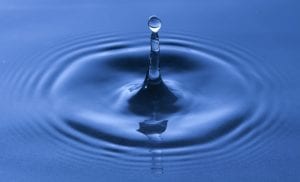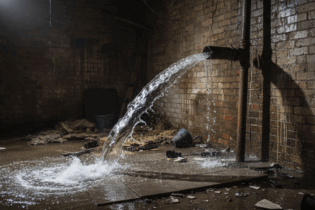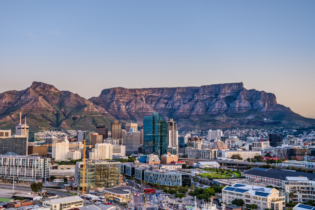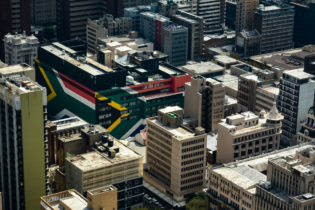 Only three out of 156 towns in South Africa were found to have insufficient drinking water quality according to AfriForum’s 2017 blue and green drop campaign. However 88 towns’ sewage water systems complied with standards.
Only three out of 156 towns in South Africa were found to have insufficient drinking water quality according to AfriForum’s 2017 blue and green drop campaign. However 88 towns’ sewage water systems complied with standards.
Blue Drop
The organisation tested the quality of drinking and sewage water in 156 South African towns during May and July this year. The drinking water in three towns – Ellisras, Heilbron and Villiers – did not meet the national standards for drinking water. The results were an improvement on previous years. According to Marcus Pawson, AfriForum’s head of Environmental Affairs, the 2014 results showed that 11 water drinking water systems did not meet the standards, while this number dropped to five towns in 2015 and again increased to seven towns out of 132 in 2016. “Since 2013, the country’s water resources have been under pressure after droughts that have occurred in many parts of the country and which are still affecting parts of the Western Cape, Northern Cape and Eastern Cape. Communities must insist on their right to access clean running water and they must hold the respective municipalities accountable by regularly monitoring the quality of drinking and sewage water,” said Pawson. “The water tests conducted by AfriForum show worrying results, especially in terms of poor sewage management, and indicate the continuous decline in South Africa’s infrastructure and a lack of skilled personnel to manage water bodies. AfriForum cautioned the towns that did not meet the set microbiological standards and requested the municipalities concerned to restore the water standard within 24 hours.”Green Drop
AfriForum tested the sewage water systems of 88 towns in May and June 2017, of which 59 did not meet the set quality standards. This is compared to 26 out of 72 sewage water systems that did not meet the standards in 2016. Clearly, the management of sewage water treatment plants (SWTP) in South Africa is declining drastically.According to Pawson, an average of 67% of South Africa’s sewage water systems do not function within the regulatory requirements, and a general decline in sewage water management has been observed throughout South Africa this year.
“The Department of Water and Sanitation as well as local municipalities are responsible for the sewage crisis in which the country finds itself, despite a budget of more than R15 billion for the DWS,” says Pawson. “The 59 wastewater treatment plants that do not meet the standards can pose a threat to human health, food security and the environment. The standard of sewage water systems should be regarded as a priority in 2017, given the drought conditions in South Africa and the fact that the country is a water-scarce land.” AfriForum is in the process of issuing letters to the non-complaint municipalities to notify them that they do not meet the set requirements. The organisation further undertakes to position itself across South Africa and to conduct annual evaluations such as these in order to monitor the infrastructure continuously. Read the full report here.






